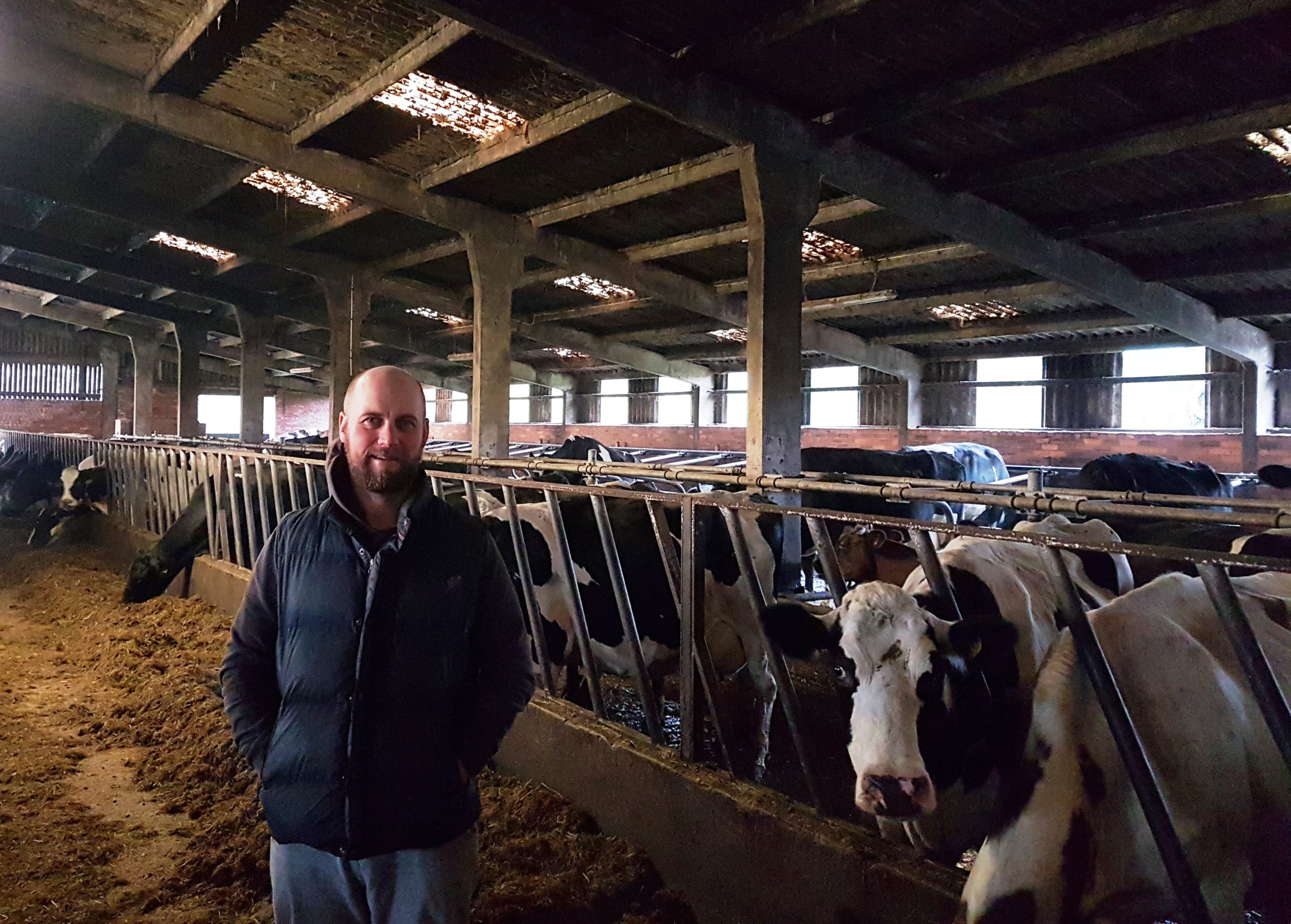With fertiliser prices beginning to drop to more manageable levels, farmers are being urged not to fall back into old habits and to think carefully about the ‘why, where and what’ they are spreading on to their fields.
During 2022, The Farming For a Better Climate (FFBC) team, part of SAC Consulting, recommended that farmers should prepare a nutrient budget to asses the level of fertiliser used on farm, in the hope of both mitigating costs and reducing emissions from farming businesses.
As fertiliser prices begin to stabilise, farmers are being encouraged to continue to make more efficient use of resources, which FFBC believes is a win-win from both a climate and economic perspective.
SAC Consulting duo of Robert Ramsay and Lorna Galloway are leading on a grass-based project with dairy farmer John Kerr, at Woodhead Farm in Ayrshire, trialling different fertiliser applications in the hope of demonstrating best practices to the wider sector.
Robert Ramsay said: “Fertiliser prices went through the roof last year and we had to think differently about the way we farm. Now that prices are coming back down, we can’t afford to slip back into old habits of lumping any old fertiliser on. We know there are better ways to approach this and here at Woodhead, we are going to be investigating what is the new best practice?
“We will be trialling several plots, looking at the impact of different application rates and different products, in the hope of building up a better understanding of their effect on yield and the economics of production.
“We are often asked when we should be spreading and what, so this is about trying to get answers to very common questions. We will be calculating how much it costs to produce a tonne of silage on each plot and identifying what are the most economical application rates and techniques for producing crops.
“While we have a huge resource of grass trial data in Scotland, this project will be more of a practical demonstration on a farm scale, with the intention of sharing our journey with farmers along the way.”
Throughout the year, FFBC will be publishing videos, podcasts and articles to coincide with the ongoing work at Woodhead.
“This is not about providing a magic recipe but instead allowing farmers to see a range of different approaches and to help them identify what might work best on their own operation,” Robert added.
John, a past FFBC focus farmer, was keen to continue to look at ways to reduce both financial and environmental costs on farm.
“As farmers, we can’t afford to sit back and not face up to the climate emergency,” he said. “The work we’re doing alongside the FFBC team will help our business to better focus on targeting nutrients to crop needs and delivering a positive impact on carbon footprint and finances.
“Fertiliser prices are easing, and it would be very comfortable for farmers to fall back to what we used to do – throw stuff on and not ask whether it was working, because it was cheap. We have a duty as a sector to respond to the climate crisis, question the way we farm and ensure we are making efficient use of our resources, which includes not reverting to old mindsets. This will also have a positive impact on our bottom lines.”
For further information on how to explore different nutrient options and other efficiency measures for your farm, guidance can be found via the FFBC website at https://www.farmingforabetterclimate.org or you can follow the project on Facebook and Twitter at @SACFarm4Climate.

